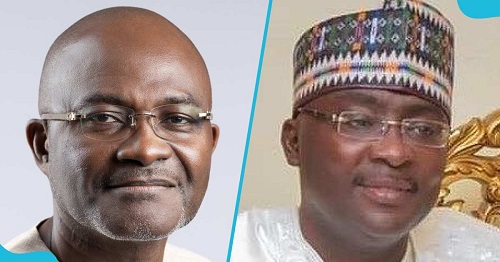
Managing a political crisis following a heavy electoral defeat is one of the most challenging moments for any political party or leader. It requires a delicate balance of accountability, resilience, and strategic repositioning to restore public trust and remain relevant in the national conversation.
In Ghana, the New Patriotic Party (NPP) is currently grappling with a profound identity and strategy crisis after its defeat in the 2024 general elections. The party appears disoriented in its political thinking and seems more focused on setting distractions for the victorious National Democratic Congress (NDC) than confronting its own failures. Ghanaians have renewed the social contract with President John Dramani Mahama, who secured a resounding victory, reflecting the electorate’s demand for credible leadership and sustainable development policies.
Defeat as Both Crisis and Opportunity
An electoral loss exposes a party’s internal weaknesses, but it also offers an opportunity for introspection, renewal, and realignment. Reorganisation must begin with honest reflection and structural reform, aimed at rebuilding unity and credibility.
The NPP’s internal confusion has been amplified by a poorly handled post-election review. The former flagbearer, Dr. Mahamudu Bawumia, has been criticized for failing to take personal responsibility and instead blaming external factors such as the Domestic Debt Exchange Programme (DDEP), the E-Levy, internal disunity, and what he called “arrogance of power.” According to Defence Minister Dr. Omane Boamah, this blame-shifting lacks sincerity and accountability, especially since Dr. Bawumia himself was a central figure in the party’s economic management.
It is unfortunate and telling that the NPP leadership has struggled to produce a coherent post-mortem. Even the highly anticipated Prof. Mike Oquaye report remains unpublished, despite earlier promises of transparency. This has raised further concerns about the party’s willingness to face hard truths.
Reorganization Roadmap
To recover, the NPP—or any party in similar crisis—should follow a structured roadmap:
1. Immediate Response
-
Acknowledge the defeat openly and graciously.
-
Avoid blame games or conspiracy theories that erode credibility.
-
Thank supporters and campaign teams, and congratulate opponents where appropriate.
-
Demonstrate leadership by remaining calm, responsible, and resolute.
2. Internal Review and Accountability
-
Conduct a transparent post-mortem through an independent review committee.
-
Analyze the causes of defeat: policy misalignment, poor messaging, strategic errors, or leadership flaws.
-
Encourage inclusive dialogue, especially among youth and grassroots members.
-
Avoid purging dissenters; promote openness and adaptability.
3. Communication Strategy
-
Reset the narrative to focus on constructive engagement.
-
Stay visible, but avoid desperation or defensive media flooding.
-
Use clear, strategic communication to show relevance and purpose, even in opposition.
4. Organisational Rebuilding
-
Reform internal structures, including leadership reshuffles where necessary.
-
Reinvigorate internal democracy and bring in new, competent talent.
-
Reconnect with grassroots through listening tours, town halls, and community presence.
5. Policy and Ideological Recalibration
-
Reassess policy positions to align with voter concerns.
-
Eliminate outdated or unpopular proposals.
-
Focus on constructive opposition, offering credible policy alternatives instead of just criticism.
6. Long-Term Renewal
-
Develop a succession plan and invest in youth leadership training.
-
Strengthen capacity at all levels—local, regional, and national.
-
Begin preparations for future elections immediately, focusing on data, field organization, and public engagement.
Conclusion
Rebuilding after a defeat is not merely about winning the next election—it is about restoring credibility, reconnecting with citizens, and redefining the party’s long-term mission. For the NPP, the task ahead is not only political but moral: to show that it can learn, change, and serve the people of Ghana with humility and vision.
Story by: Alexander Kkah




